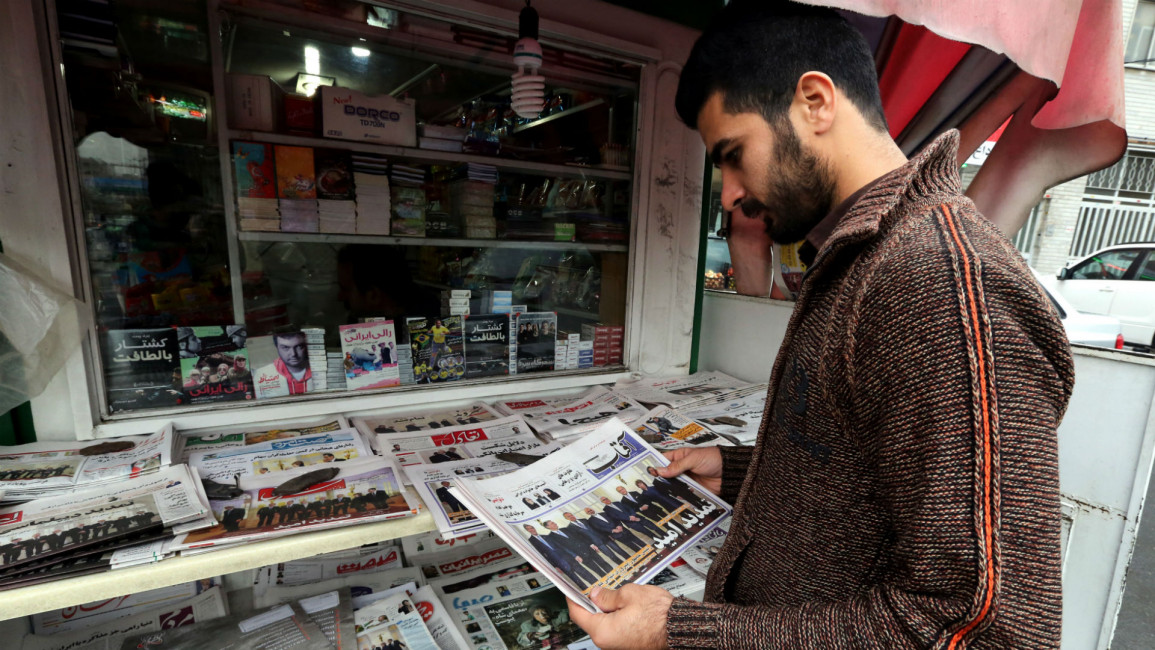Khamenei: Iran won't be brought to knees
Iran's supreme leader Ayatollah Ali Khamenei said Tuesday the country would not sink "to its knees" over its disputed nuclear programme, his first comment since a missed deadline for a deal.
"In the # nuclear issue, arrogant have made their best to bring # Iran to its knees but they were not able and will not be able to do so," a tweet on his #Khamenei_ir account said.
Iranian officials often refer to the Western governments as arrogant. Iran and world powers announced on Monday that talks on a comprehensive nuclear agreement had been inconclusive and would be extended until June 30 next year.
US secretary of State John Kerry and Iranian President Hassan Rouhani, speaking separately, earlier welcomed what they described as the real progress achieved in the nuclear talks in Vienna. "This path of negotiation will reach a final agreement.
Most of the gaps have been removed" Rouhani said in an address on state television. Iran and the five permanent members of the UN Security Council plus Germany will seek to strike an outline deal by March 1 and to nail down a full technical accord by July 1, officials said.
“We have had to conclude that it is not possible to get to an agreement by the deadline that was set for today (Monday) and therefore we will extend." British Foreign Secretary Philip Hammond said in Vienna.
The conditions set by last November's interim deal will remain in place until July, including a continued freeze by Iran of contentious parts of its nuclear activities. In return, Iran will keep receiving around $700 million in frozen funds per month, Hammond said.
In the best chance to resolve the 12-year dispute over Iran's nuclear programme, the so-called P5+1 world powers have been for months seeking to turn an interim deal with Iran that expired at midnight Monday into a lasting accord. The talks aimed at easing fears that Tehran will develop nuclear weapons under the guise of its civilian activities, an ambition it strongly denies and lift painful sanctions imposed on the Islamic Republic.
Domestic opposition
But no sooner had the extension been announced in Vienna, US Secretary of State John Kerry implored US lawmakers not to "walk away" from the negotiations by slapping punitive sanctions on Iran. That several lawmakers advocated just that, setting up a potential White House-Congress clash next year.
Despite the positive tone of Rouhani, Iran's media were deeply split Tuesday on the merit of extending nuclear talks with the West, with conservative newspapers slamming the move as reformist outlets said progress had been made.
Vatan-e-Emrooz, a hawkish broadsheet title, headlined its front page "Nothing" and beneath the fold had only empty white space.
"A year has passed since the Geneva accord. Nuclear negotiations for the removal of sanctions did not reach a result," the newspaper said, announcing the seven-month extension in talks to its readers.
"This is to cover up that negotiations in fact failed because of America's excessive demands," a downbeat front-page editorial added.
Siasate-e Rooz, was similarly pessimistic.
"The Americans, despite announcing in their media that they want a deal, in fact do not believe in reaching a nuclear agreement with the Islamic Republic of Iran and have never taken any steps to achieve this result," its front-page editorial said.
However, President Hassan Rouhani received support from more moderate titles.
"A major change took place in the past 15 months... the victory of realism, rationality and pragmatism," the reformist Shargh newspaper said.



